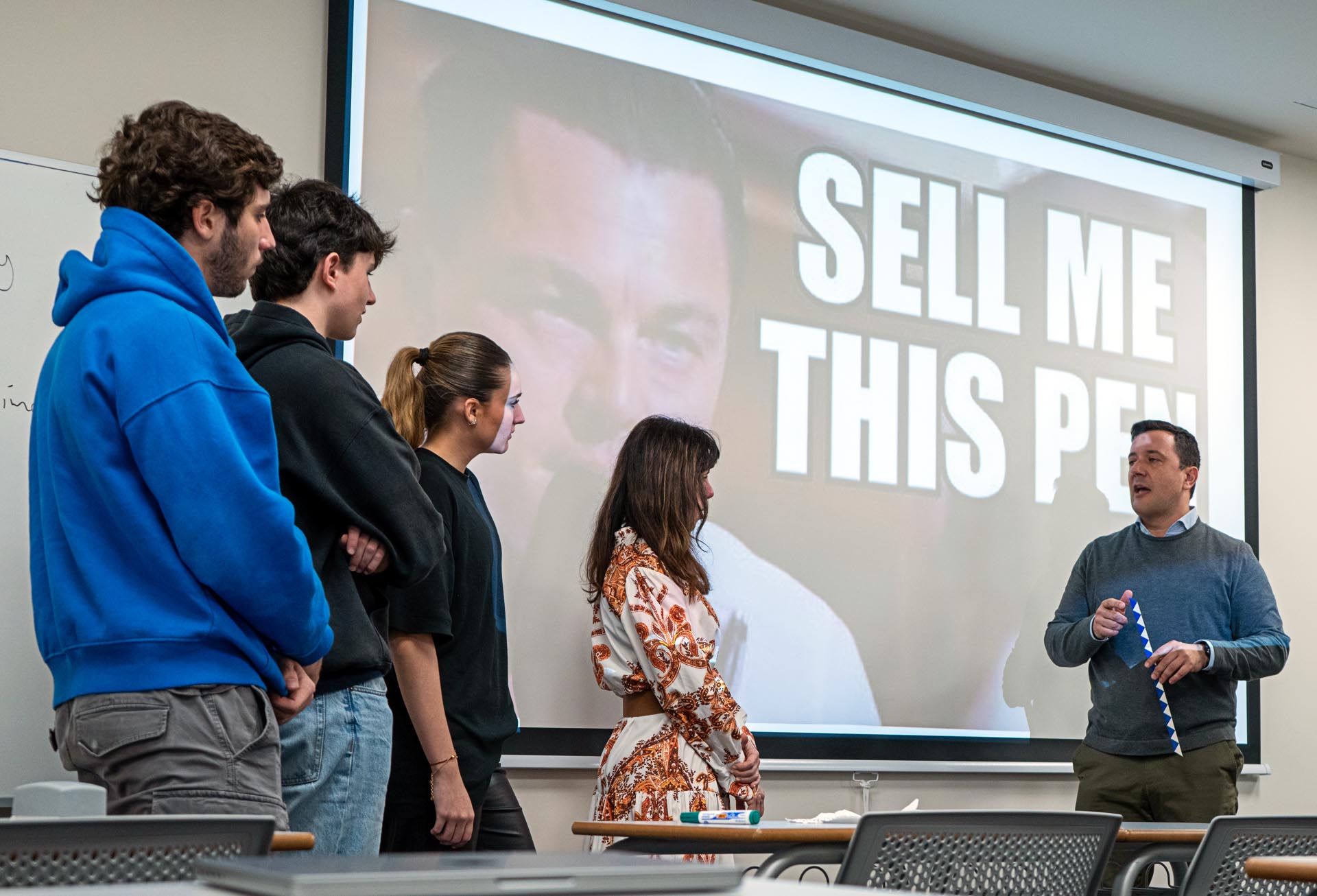Persuasion is truly an art and not a science, so there are no concrete formulas for success. However, in the same way that there are different paths to reach the same destination, we know some key factors that one can incorporate into their sales strategies to reach the target audience and persuade effectively.
In the Business Communication class at CIS University, Professor Karyn Suárez explained to her students the importance of persuasion through several cases of historical negotiations. Next, the students were able to apply the theory through a simulated sale to the rest of their classmates.
To do this, the student had to blindly select a random object from a box – such as a toy, a cell phone holder or a souvenir – after which he had a few minutes to prepare his speech and sales strategy.
The basis for this activity is found in the writings of the Greek philosopher Aristotle, whose principles still resonate in the modern world. The triad of the strategic tenets he categorized, containing such principles as Ethos, Pathos, and Logos, provides a solid framework from which we can articulate an effective persuasive discourse.
- The principle of Ethos, from which is derived the word “ethics,” emphasizes the importance of establishing credibility, authority, and moral legitimacy on the topic in question, such as emphasizing one’s years of experience or extensive training in the subject. It is essential from the beginning to build a solid foundation of trust with the target audience.
- On the other hand, the Pathos principle focuses on emotional connection. By understanding and appealing to shared emotions, persuaders can build meaningful bridges with their audience, making it easier to accept and internalize their messages.
- Finally, the Logos principle incorporates logic, data, and statistical findings to support and reinforce the arguments presented. We can talk here about a discount on the price or the improved effectiveness rate. This rational basis complements emotions and credibility, further strengthening persuasion.

Professor Suárez emphasizes that the effective application of these concepts not only requires theoretical understanding of them, but also authenticity and genuine passion for the product or idea that is being promoted:
“Persuading and convincing others requires more than just technical skills. Authenticity and passion cannot be faked, they are key elements that guide persuasion to success.”
CIS University students had the opportunity to test their persuasive selling skills, since these practical experiences – learning by doing – not only consolidate theoretical learning, but also prepare students to face persuasive challenges in the real world.
Persuasion and sales skills are so valued today by organizations and recruiters, that Professor Suárez hardly had to motivate the students to do it, since this activity was practically “sold without effort.”

